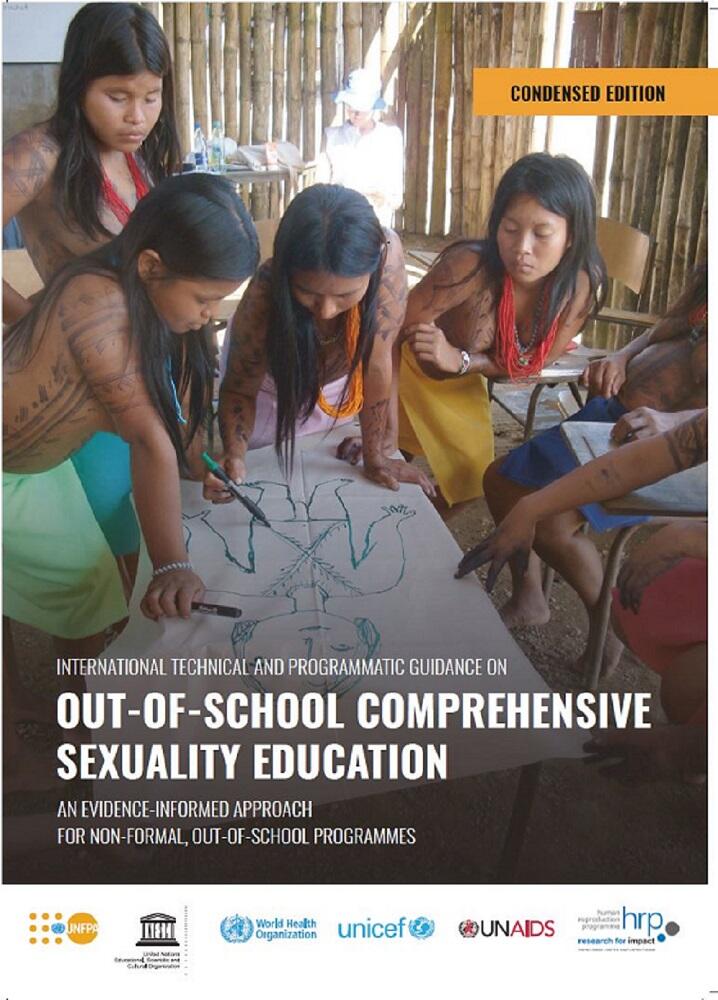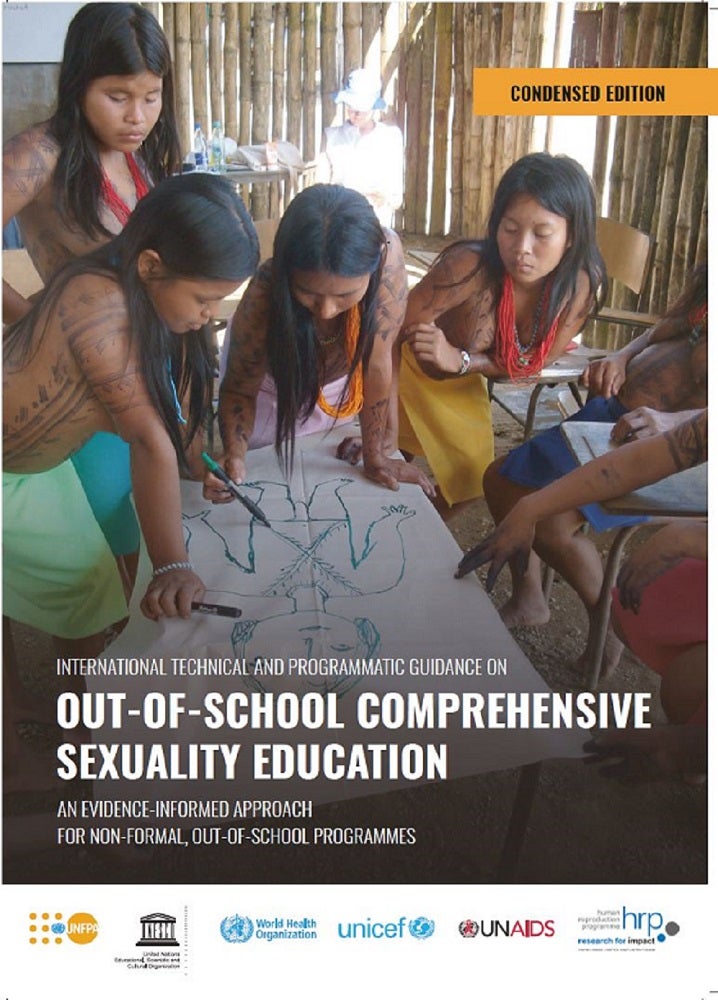The United Nations Population Fund (UNFPA), with collaborating partners from the World Health Organization (WHO), the United Nations Educational, Scientific and Cultural Organization (UNESCO), the United Nations Children’s Fund (UNICEF) and the Secretariat of the Joint United Nations Programme on HIV and AIDS (UNAIDS), have developed this guidance to build upon and complement the UN International Technical Guidance on Sexuality Education (ITGSE). It offers more in-depth programmatic guidance on how to develop CSE programmes that are appropriate and safe for different groups of children and young people, especially those who are unlikely to be addressed in CSE programmes for children and young people generally.
THE GUIDANCE IS INTENDED TO:
- Provide a clear definition and overview of out-of-school CSE;
- Promote an understanding of the need for out-of-school CSE by raising awareness of the sexuality, health and rights issues and concerns that impact children and young people, including specific groups of children and young people who may not be addressed in school;
- Deliver guidance on how to plan, develop and implement out-of-school CSE programmes that meet the needs of specific groups of children and young people: curricula and teaching and learning materials that are evidence based, culturally responsive, age- and developmentally appropriate, and trauma-informed.
- Provide recommendations for engaging peer educators, involving parents and guardians, and using technology
It includes young people from specific left-behind populations: Girls and young women; Boys and young men; Young people with disabilities; Young people in humanitarian settings; Young indigenous people; Young lesbian, gay and bisexual people, and other young men who have sex with men; Young transgender people; Young intersex people; Young people living with HIV; Young people who use drugs; Young people who sell sex; Young people in detention.
This guidance is intended to assist anyone designing and/or implementing CSE in out-of-school settings, especially in low- and middle-income countries. This includes international and national civil-society organizations, community-based organizations, government departments, UN agencies, health authorities, non-formal education authorities and youth development authorities. It is also intended for anyone else involved in the design, delivery and evaluation of sexuality education programmes out of school, especially those working with the specific groups of young people addressed in the guidance.



